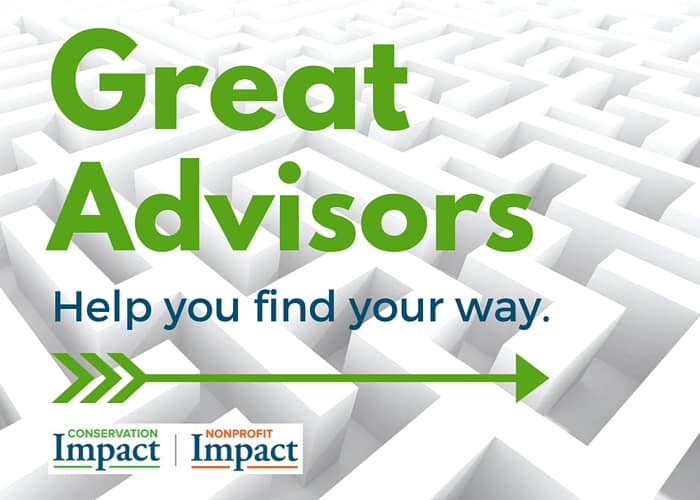
What’s Wrong with Your Advisory Group?
Many nonprofit organizations opt to form advisory groups, perhaps as a way to honor or connect with major donors or to keep past board members engaged (and/ or to keep them giving!). For our public sector clients, advisory groups come about for different reasons – in response to a legislative mandate or a funder requirement or as an answer to a need to better engage (or manage, or appease) various stakeholders.
Despite having different origins, advisory groups in both sectors often share a common challenge: a lack of engagement.
It’s important to understand that this lack of engagement can run both ways. The nonprofit or government agency often says, “Our advisors never engage with us (or they engage around the wrong topics or at the wrong level).” On the other side, many advisory group members complain, “I don’t know what my role is. They invite me to a couple of meetings a year and talk at me.”
What’s going on here?
In short, most advisory groups are never used as a source of advice. Instead, advisors are convened and given lots of reports and updates from staff. Or, they are invited to attend various events (fundraisers, hearings, task force meetings, site visits). Or they remain a list of names on the website, in the grant proposal, on the letterhead.
But they are rarely, if ever, explicitly asked for their advice.
What to do? (nonprofit organizations)
For a nonprofit, where forming an advisory group is optional, only create one if you actually need advice* on an ongoing basis! What that’s the case, I like the “kitchen cabinet” approach: select a few highly skilled people to be your inner circle, a group you can turn to outside of your governing board so you can be frank and talk through important issues outside the formal structure. And, if you really want an advisory group, then you probably don’t want more than 4 or 5 people on it, or you’ll end up with too MUCH advice!
If you don’t really need advice, but instead want to find a way to better engage major donors or retiring board members, invite them to lunch, discuss their needs, expertise, and availability and measure that up against your organizational needs. Where there’s overlap you have the engagement answer you’re looking for – and it’s probably not service on an advisory group.
* In many instances, nonprofit governing boards are highly underutilized for their expertise and advice. How often do you use board meetings to ask the members, “What is going on in your world that might have an influence on our organization?” or, “What are you paying attention to that is relevant to our work?”
What to do? (government agencies)
If you are in the public sector, the situation is a bit different. If you are thinking of forming a new advisory group, the advice from above applies. But, if you have an existing mandated or funder-required advisory group that’s just not working, it’s time to turn your lemons into lemonade. If how you are interacting with that group just doesn’t work, try something new:
- First, come at it from a fresh perspective and ask:
- What expertise do these advisors bring?
- How/ where does that best match with what our agency needs?
- What’s the best way to access that expertise?
- Then, identify ways to shift your approach, perhaps:
- Arrive at each meeting with a list of key questions/ topics and ask their advice on specific items
- Hold a “re-orientation” meeting – review the group’s origins, your agency’s strategic goals and ask the group how they can offer value to the effort? How do they want to participate? What is the best role for them moving forward?
- Throw the meeting idea out the window. You probably have too many meetings to go to anyway. Sit down with the group’s chairperson and discuss the advice your agency needs and the best way to get it (e.g., a phone call to one member rather than a large quarterly meeting).
As with any partner segment, when you start to align the partnership purpose (advisory) with your partnership relations strategy (ask for advice that is needed and act upon it) and you’re halfway there.

